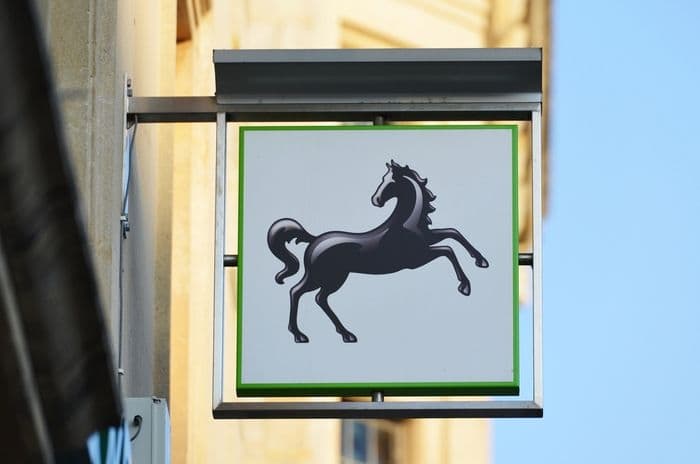Home > Money > News > Lloyds' MBNA takeover approved by competition watchdog
Lloyds' MBNA takeover approved by competition watchdog
THE Competition and Markets Authority (CMA) have decided not to subject Lloyds' £1.9 billion acquisition of credit card provider MBNA to an investigation, allowing the bank to proceed with gaining a 26% share of the credit card market.

The CMA's decision not to undertake a "Phase 2" investigation into the deal comes after a Phase 1 inquiry, which has concluded that the merger doesn't pose a particular threat to competition and choice in the credit card market.
Yet given that the deal now means that two banks - Lloyds and Barclays - control 52% of this market, consumer groups have warned that customers may be hit with higher interest rates.
And there also remains a chance that, with their acquisition of £7 billion's worth of credit card debt, Lloyds are exposing themselves to considerable risk, especially at a time when the Bank of England and other financial institutions have repeatedly warned of the economic risks of high household debt.
Background
Growing rates of 'problem debt'
Bankruptcies rise by 13% in 2016
Amazon launch reward card
The acquisition also comes at a time when Lloyds are on the brink of becoming wholly private-owned again, after the Government's share in the bank - which at the peak of the financial crisis stood at 43% - has been whittled down to 1%.
It would seem that, just as Lloyds are about to confirm a clean bill of financial health, they're taking on liabilities that could potentially end up landing them in the same kind of trouble from which they've only recently emerged.
These liabilities represent the first time Lloyds have completed an acquisition since the financial crisis, although naturally Lloyds are viewing them more as assets that will enable them to grow their revenues.
They expect that £650 million will be added to their turnover each year, while they also expect that their net interest margin (how much they earn in interest against how much they pay out) will increase by 10%.
Concerns
Yet despite their hopes for the acquisition, some consumer groups have met the merger with scepticism, arguing that it will only cause the UK's debt binge to expand to more dangerous proportions.
Commenting on the kind of 0% deals for which MBNA are known, James Daley of Fairer Finance said, "Zero per cent deals are a ticking timebomb. They feed our addiction to short-term credit and I worry about lenders handing out credit to anyone who asks for it".
Added to fears of increasing risk, there's also the concern that choice and competition will be reduced because of the merger, even though the CMA have given it the green light.
However, in response to this worry that customers will perhaps have to pay more expensive interest rates, Lloyds have replied by affirming that MBNA will be kept separate from their parent company, so that Lloyds will effectively "compete with ourselves".
Synergies
And in light of how the credit card market remains incredibly competitive at the moment, with numerous banks besides Lloyds and Barclays looking to expand the deals they offer customers, it's unlikely that the merger will hurt choice in the short or medium term.
On top of this, it may enable MBNA and/or Lloyds to offer customer more competitive terms and rates, insofar as Lloyds expect that it will allow for "cost synergies" expected at around £100 million per year within 2 years, equal to around 30% of MBNA's cost base.
It's for such reasons that the CEO of Lloyds Banking Group, Antonio Horta-Osorio, framed the merger by saying, "The MBNA brand and portfolio are a good fit with our existing card business and we will focus on providing its customers with excellent service and value. Our low cost to income ratio and proven integration capabilities will deliver significant synergies and value".
And now that the acquisition has been approved by the CMA, it can only be hoped that time proves him and Lloyds right.
Get insider tips and the latest offers in our newsletter
Get insider tips and the latest offers in our newsletter

We are independent of all of the products and services we compare.

We order our comparison tables by price or feature and never by referral revenue.

We donate at least 5% of our profits to charity, and we aim to be climate positive.
Latest News

26 October 2022
Cost of living showing worrying trends in affordability
16 June 2022
FCA warn lenders on cost of living difficulties


